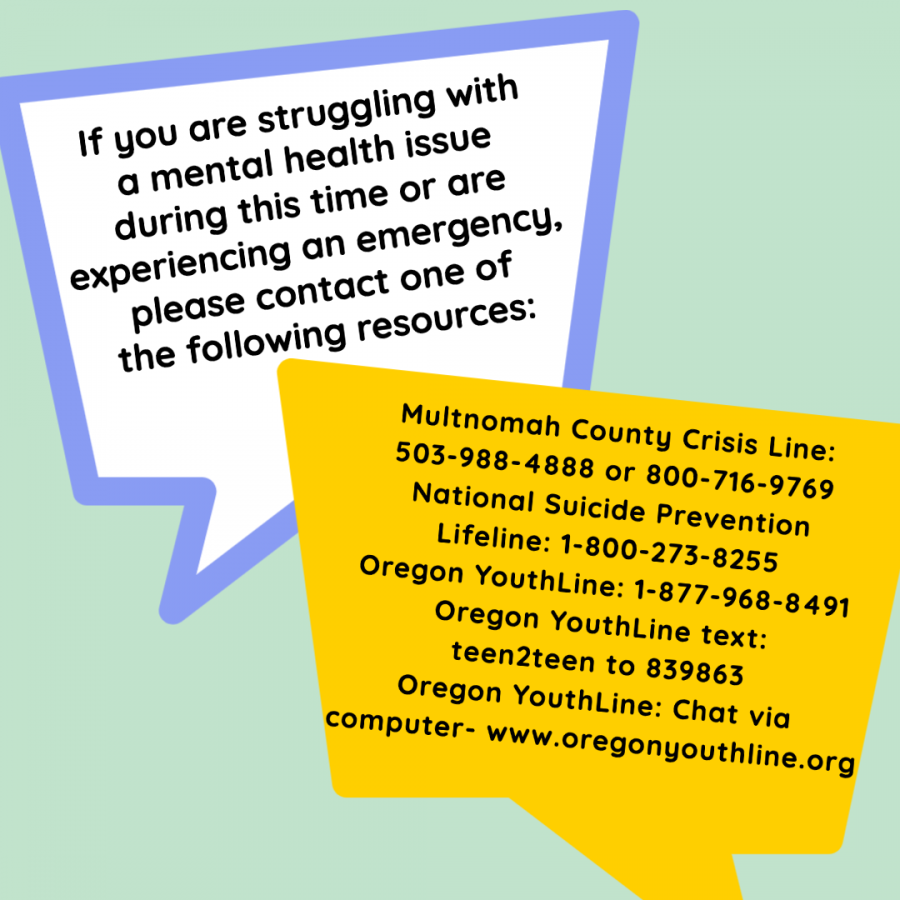Quarantine takes toll on mental health of students
Countless hours stuck inside. Online school. Not being able to see friends and family. Fear and anxiety surrounding an unknown future. Quarantine is taking a major toll on the lives of many high school students.
Susan Dean, Sunset High School’s psychologist and mother of a Lincoln student, explains some of the ways that quarantine has been negatively impacting students’ mental health.
“There are students who are struggling with being isolated and not being able to hang out with their friends. Some students are more stressed at home due to complicated relationships with family members. Many parents are stressed about their jobs and finances that can impact their children, adding stress on children. Others find distance learning a struggle that impacts their mood and anxiety levels,” says Dean.
One aspect of quarantine that is affecting students’ mental health is online school. For some students, their workload took control of their lives and they had to adjust to a whole new schooling system.
Junior Sam Denton explains how he had to adapt his schedule to finish all his online work.
“After having a couple of days of what seemed to me like poor academic effort I decided to delete a majority of the apps on my phone I spent too much time on, like Netflix, YouTube and all mobile video games,” says Denton.
Other students, some of whom are underclassmen, have found the online workload to be manageable. For sophomore Mia Knepper, it has served as a distraction from the current state of our world.
“Honestly, it’s easy to balance schoolwork with at-home responsibilities sometimes because there are some teachers who give out more and some less,” says Knepper. ”I really appreciate my teachers who care for my mental health and only give a minimal amount of homework.”
According to a statement released by PPS, “for seniors who have met the graduation requirements, mandatory coursework is over, as of [April 10].” This gave seniors even less drive to complete schoolwork, as technically, they were already considered graduates. Being unable to participate in senior events such as graduation and prom additionally took a toll.
Robin Briglia had to adjust to her new senior lifestyle at home while coping with the loss of these important senior traditions.
“It has been difficult to find the motivation to go to online classes and do school work being a senior where no work is technically required,” says Briglia.
Whether a student’s workload is heavy or light, many students across all grades report they are struggling with mental health-related issues in quarantine.
“Not being able to see friends and have social interaction has definitely affected my mental health negatively,” says Briglia. “I spend more time on my phone or computer than I normally would, which is not healthy and makes me feel a dependence on using social media as a main outlet.”
Dean explains the psychology behind why a lack of social interaction negatively affects our brains.
“Data shows that our brains are wired for social interaction. We are born into families, not born alone or isolated by ourselves. Our brains grow and develop by watching others, by learning and connecting to others. During this time of isolation, our brains crave interaction with others,” says Dean.
This means that it is still important to stay connected to others during this time, especially positive people.
“Isolation can increase anxiety and depression in a person who may already be struggling in these areas,” says Dean, so keeping ties with people during this time is especially important.
Dean argues that social isolation isn’t the only cause of mental health problems, however.
“Some students are more stressed at home due to complicated relationships with family members. Many parents are stressed about their jobs and finances that can impact their children, adding stress on children. Others find distance learning a struggle which impacts their mood and anxiety levels.” says Dean.
All of these factors have created an increase in demand for mental health professionals, like Dean, who had one last piece of advice for students currently struggling.
“This time of social distancing won’t last forever. This situation is new for everyone,” she said. “It is okay to not always be happy; it is normal to have our moods change. If you find yourself sad for a prolonged period of time or your anxiety impacts your daily functioning, or you are having negative thoughts about harming yourself, please speak up and seek help. Talk to a trusted adult or reach out to a professional and don’t be afraid to share how you feel. It is in the silence that we struggle the most.”
If you are struggling with a mental health issue during this time or are experiencing an emergency, please contact one of the following resources:
Multnomah County Crisis Line: 503-988-4888 or 800-716-9769
National Suicide Prevention Lifeline: 1-800-273-8255
Oregon YouthLine: 1-877-968-8491
Oregon YouthLine text: teen2teen to 839863
Oregon YouthLine: Chat via computer- www.oregonyouthline.org

